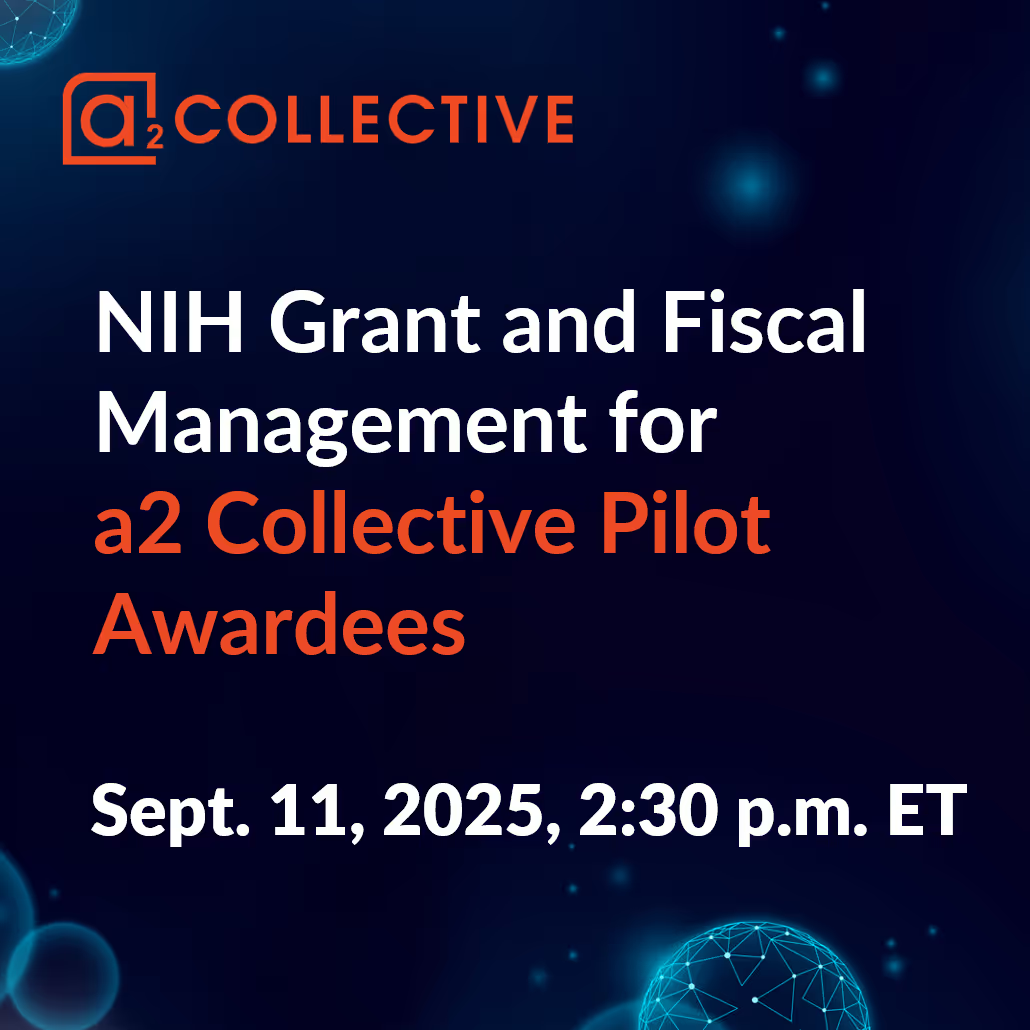On September 11, 2025, the a2 Collective Coordinating Center held an interactive virtual webinar on grant and fiscal management considerations relevant to navigating the pilot funding process exclusively for a2 Pilot Awards–funded project teams. This webinar featured presentations from four subject matter experts in National Institutes of Health (NIH) grants management, NIH financial conflict of interest (FCOI) policy, and federal auditing and tax considerations.
Rebecca Claycamp, MS, CRA, senior subject matter expert in NIH grants management, Rose Li and Associates, Inc., emphasized that while the a2 Pilot Awards are funded through NIH awards from the National Institute on Aging (NIA), all pilot awardees are considered subawardees of the funding AITC and should direct budgetary and documentation questions or concerns to the AITC as the prime recipient of the NIH grant. Project costs must not only be reasonable and allowable, but also allocable—costs need to have a direct relation to the project such that the absence of budget line items would hinder the project’s completion.
Kathy Hancock, subject matter expert in NIH FCOI, noted that that FCOI reporting requirements are only applicable to external financial interests, not financial compensations received as a result of research and development within one’s own small business (e.g., salary, equity). She also pointed out that FCOIs are not viewed negatively or discouraged; they simply must be disclosed and managed to promote objectivity, prevent bias, and maintain public trust in NIH-funded research.
Ryan Ham, CPA, director of tax, GRF CPAs & Advisors, emphasized potential differences in tax implications based on entity types and the location that the business is operating in, including variations across individual state and city jurisdictions.
Michael Larson, MS, audit manager, GRF CPAs & Advisors, indicated that while Uniform Guidance audits likely won’t apply for pilot awardees receiving their first federal grant, clear and consistent financial documentation should still be established to prepare for potential future audits as pilot awardees receive additional federal funding.
For additional information on NIH grants and fiscal management, consult the below NIH resources:
• NIH Financial Conflict of Interest Policy
• NIH Office of Policy for Extramural Research Administration
Note: This webinar was offered for informational purposes only and does not constitute financial or tax advice. The views expressed are those of the presenters and do not necessarily represent official positions of NIH, NIA, or the AITC program. Individual AITC institutions may have more specific policies in place for subaward implementation; thus, pilot awardees should prioritize direct guidance provided by the AITC funding the project.




